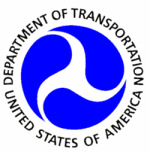Reimbursement For Lost Baggage, Greater Compensation For Bumped
Passengers Included
 Transportation Secretary Ray LaHood
(pictured) announced new airline passenger protections
Wednesday that will require airlines to reimburse passengers for
bag fees if their bags are lost, provide consumers involuntarily
bumped from flights with greater compensation, expand the current
ban on lengthy tarmac delays, and disclose hidden fees. The
rulemaking finalized today builds on passenger protections issued
by the U.S. Department of Transportation in December 2009, which
prohibited U.S. airlines operating domestic flights from permitting
an aircraft to remain on the tarmac for more than three hours, with
exceptions for safety, security and air traffic control
related-reasons. The rule also required U.S. airlines to provide
basic services such as access to lavatories and water in the event
of extended tarmac delays.
Transportation Secretary Ray LaHood
(pictured) announced new airline passenger protections
Wednesday that will require airlines to reimburse passengers for
bag fees if their bags are lost, provide consumers involuntarily
bumped from flights with greater compensation, expand the current
ban on lengthy tarmac delays, and disclose hidden fees. The
rulemaking finalized today builds on passenger protections issued
by the U.S. Department of Transportation in December 2009, which
prohibited U.S. airlines operating domestic flights from permitting
an aircraft to remain on the tarmac for more than three hours, with
exceptions for safety, security and air traffic control
related-reasons. The rule also required U.S. airlines to provide
basic services such as access to lavatories and water in the event
of extended tarmac delays.
"Airline passengers have a right to be treated fairly," said
Secretary LaHood. "It's just common sense that if an airline loses
your bag or you get bumped from a flight because it was oversold,
you should be reimbursed. The additional passenger protections
we're announcing today will help make sure air travelers are
treated with the respect they deserve."
 Airlines will now be required to
refund any fee for carrying a bag if the bag is lost. Airlines will
also be required to apply the same baggage allowances and fees for
all segments of a trip, including segments with interline and code
share partners. Airlines are already required to compensate
passengers for reasonable expenses for loss, damage or delay in the
carriage of passenger baggage. Airlines will also have to
prominently disclose all potential fees on their websites,
including but not limited to fees for baggage, meals, canceling or
changing reservations, or advanced or upgraded seating. In
addition, airlines and ticket agents will be required to refer
passengers both before and after purchase to up-to-date baggage fee
information, and to include all government taxes and fees in every
advertised price. Previously, government taxes and fees were not
required to be included in the up-front fare quotation.
Airlines will now be required to
refund any fee for carrying a bag if the bag is lost. Airlines will
also be required to apply the same baggage allowances and fees for
all segments of a trip, including segments with interline and code
share partners. Airlines are already required to compensate
passengers for reasonable expenses for loss, damage or delay in the
carriage of passenger baggage. Airlines will also have to
prominently disclose all potential fees on their websites,
including but not limited to fees for baggage, meals, canceling or
changing reservations, or advanced or upgraded seating. In
addition, airlines and ticket agents will be required to refer
passengers both before and after purchase to up-to-date baggage fee
information, and to include all government taxes and fees in every
advertised price. Previously, government taxes and fees were not
required to be included in the up-front fare quotation.
In addition, the rule announces that the Department will issue a
supplemental notice of proposed rulemaking later this year that
would require, among other things, that ancillary fees be displayed
at all points of sale.
 Today's rule doubles the amount of
money passengers are eligible to be compensated for in the event
they are involuntarily bumped from an oversold flight. Currently,
bumped passengers are entitled to cash compensation equal to the
value of their tickets, up to $400, if the airline is able to get
them to their destination within a short period of time (i.e.,
within 1 to 2 hours of their originally scheduled arrival time for
domestic flights and 1 to 4 hours of their originally scheduled
arrival time for international flights). Bumped passengers are
currently entitled to double the price of their tickets, up to
$800, if they are delayed for a lengthy period of time (i.e., over
two hours after their originally scheduled arrival time for
domestic flights and over 4 hours after their originally scheduled
arrival time for international flights). Under the new rule, bumped
passengers subject to short delays will receive compensation equal
to double the price of their tickets up to $650, while those
subject to longer delays would receive payments of four times the
value of their tickets, up to $1,300. Inflation adjustments will be
made to those compensation limits every two years.
Today's rule doubles the amount of
money passengers are eligible to be compensated for in the event
they are involuntarily bumped from an oversold flight. Currently,
bumped passengers are entitled to cash compensation equal to the
value of their tickets, up to $400, if the airline is able to get
them to their destination within a short period of time (i.e.,
within 1 to 2 hours of their originally scheduled arrival time for
domestic flights and 1 to 4 hours of their originally scheduled
arrival time for international flights). Bumped passengers are
currently entitled to double the price of their tickets, up to
$800, if they are delayed for a lengthy period of time (i.e., over
two hours after their originally scheduled arrival time for
domestic flights and over 4 hours after their originally scheduled
arrival time for international flights). Under the new rule, bumped
passengers subject to short delays will receive compensation equal
to double the price of their tickets up to $650, while those
subject to longer delays would receive payments of four times the
value of their tickets, up to $1,300. Inflation adjustments will be
made to those compensation limits every two years.
The new rule also expands the existing ban on lengthy tarmac
delays to cover foreign airlines' operations at U.S. airports and
establishes a four hour hard time limit on tarmac delays for
international flights of U.S. and foreign airlines, with exceptions
allowed only for safety, security or air traffic control-related
reasons. Carriers must also ensure that passengers stuck on the
tarmac are provided adequate food and water after two hours, as
well as working lavatories and any necessary medical treatment.
The extended tarmac delays experienced by passengers on
international flights operated by foreign carriers at New York's
JFK Airport during the December 2010 blizzard was an important
factor in the Department's decision to extend the tarmac delay
provisions to foreign air carriers and establish a four hour tarmac
delay limit for international flights.
The Department of Transportation's rule will make air travel
simpler and easier in a number of other ways, including:
-
 Requiring airlines to allow
reservations to be held at the quoted fare without payment, or
cancelled without penalty, for at least 24 hours after the
reservation is made, if the reservation is made one week or more
prior to a flight's departure date.
Requiring airlines to allow
reservations to be held at the quoted fare without payment, or
cancelled without penalty, for at least 24 hours after the
reservation is made, if the reservation is made one week or more
prior to a flight's departure date.
- Requiring airlines to promptly notify consumers of delays of
over 30 minutes, as well as cancellations and diversions. This
notification must take place in the boarding gate area, on a
carrier's telephone reservation system and on its website.
- Banning post-purchase fare increases unless they are due to
government-imposed taxes or fees, and only if the passenger is
notified of and agrees to the potential increase at the time of
sale.
- Requiring more airlines to report lengthy tarmac delays at U.S.
airports with DOT, including data for international flights and
charter flights.
Previously, only the 16 largest U.S. passenger carriers were
required to file this data, and only for domestic scheduled
flights.
Secretary LaHood announced the first airline consumer protection
rule in December 2009, and that rule has resulted in the
near-elimination of lengthy tarmac delays. Between May 2010 and
February 2011, the first full 10 months the rule was in effect, the
largest U.S. airlines reported only 16 tarmac delays of more than
three hours, compared to 664 from May 2009 through February 2010.
The new rule also required these airlines to post on-time
performance information for each domestic flight they or their
code-share partners operate.
Most provisions of the rule will take effect 120 days after its
publication in the Federal Register.
 ANN's Daily Aero-Linx (04.15.24)
ANN's Daily Aero-Linx (04.15.24) Classic Aero-TV: 'No Other Options' -- The Israeli Air Force's Danny Shapira
Classic Aero-TV: 'No Other Options' -- The Israeli Air Force's Danny Shapira Aero-News: Quote of the Day (04.15.24)
Aero-News: Quote of the Day (04.15.24) Airborne 04.16.24: RV Update, Affordable Flying Expo, Diamond Lil
Airborne 04.16.24: RV Update, Affordable Flying Expo, Diamond Lil ANN's Daily Aero-Term (04.16.24): Chart Supplement US
ANN's Daily Aero-Term (04.16.24): Chart Supplement US






